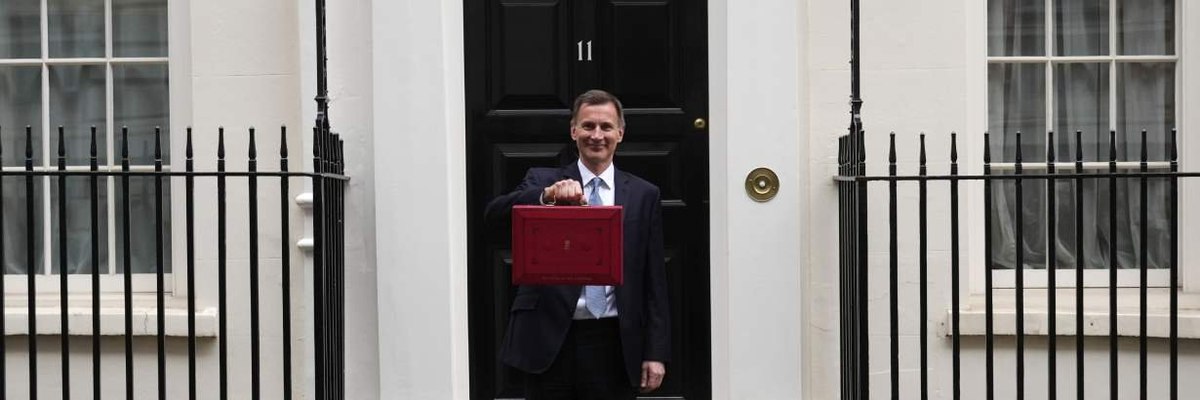The Chancellor’s announcements are received differently across the five groups
With the Chancellor Jeremy Hunt announcing his Spring Budget last week, YouGov can reveal how Britain’s five distinct cost of living segments feel about the measures put forward in the statement, and their thoughts on the government’s handling of the nation’s finances.
Our cost of living groups, estimated by modelling responses to key questions from over 11,000 Brits, range from the asset rich, low worry ‘Calm and Comfortable’, through the ‘Unsettled Withstanders’, ‘Squeezed but Coping’, ‘Cautiously Hopeful Strugglers’, to the financially troubled and highly concerned ‘Worried and Suffering’.
Concerns about the government’s handling of the economy differ greatly by segment.
While the Calm and Comfortable tend to think the government is managing the economy well (by 51% to 32%), and Cautiously Hopeful Strugglers are divided (43% say well, 45% say badly), few among the other segments believe the government is doing a good job, including 16% of Unsettled Withstanders, 12% of the Squeezed but Coping, and a mere 5% of the Worried and Suffering.
That same pattern generally repeats when we look at how “fair” the groups think the Spring Budget is. For instance, while 55% of the Calm and Comfortable think the budget is fair and 14% think it is not, only 12% of the Worried and Suffering think it is fair versus 55% who do not.
The ‘fair/not fair’ gap stands at -22 for the Squeezed but Coping, -8 for the Unsettled Withstanders, and +21 for the Cautiously Hopeful Strugglers.
Equally, the Worried and Suffering believe the budget will make the country worse off by a margin of 49% to 3% (worse off versus better off), while the Calm and Comfortable are most likely to think the spring statement will improve the country’s finances (27%, versus 5% who say “worse off” – 51% say “not much difference”).
Overall, it appears that those for whom the cost of living crisis is biting hardest – the Worried and Suffering – are least convinced about the Chancellor’s announcements and the ability of the Conservatives to manage the country’s finances.
However, the comparatively more optimistic Cautiously Hopeful Strugglers – who also face tough financial pressures – are much more welcoming of the new measures and more supportive of the government on the economy in general.
Some room for agreement on policy proposals
Looking past the headlines, we do see some quite high levels of agreement on some of the specific measures announced by the Chancellor last week.
For instance, over three-quarters of each of the five segments thought that extending the cap for energy prices for another three months was a good idea.
Similarly, the decision to freeze tax on petrol and diesel at its current level is also popular with at least three-quarters of each of the five groups.
However, issues such as creating the 12 new investment zones across the UK attracted some rather more mixed responses. While 51% of the Calm and Comfortable think this is a good idea versus 11% who felt it was the wrong priority at the present time, just 27% of the Worried and Suffering believe this is a good priority versus 37% who think it is the wrong one for now.
Equally, there were notable differences on the government’s plan to abolish the ‘Lifetime Allowance’ (the total amount people can save tax-free in their pension funds). While the Calm and Comfortable (46% good idea, 28% wrong priority) and Cautiously Hopeful Strugglers (44% good idea, 32% wrong priority) were generally more likely to support this measure, members of each of the Worried and Suffering, Unsettled Withstanders, and Squeezed but Coping segments were more likely to think it was the wrong priority than a good idea (by 13 points, 7 points, and 10 points respectively).
Picture: Getty








